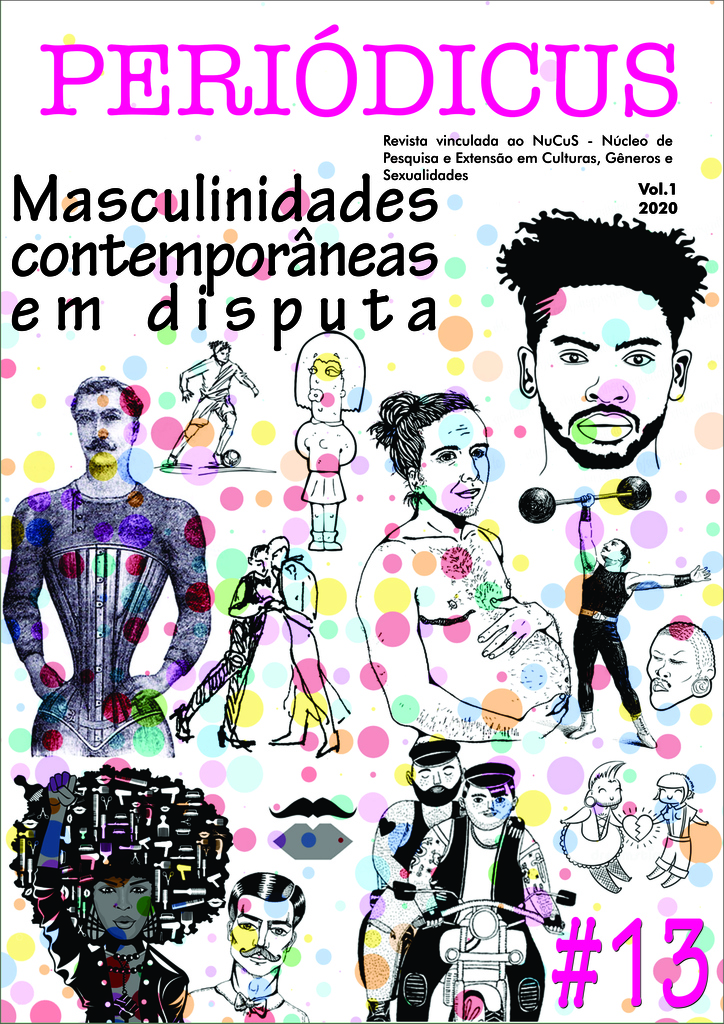Cantos de liberdade: Bluesman e as possibilidades de sentimentos de homens negros // Chants of freedom: Bluesman and the possibilities of feelings of black men
DOI:
https://doi.org/10.9771/peri.v1i13.35676Abstract
Neste artigo buscou-se analisar elementos que constituem o álbum Bluesman do cantor Baco Exu do Blues, especialmente aqueles reveladores das masculinidades negras e seus sentimentos. Destarte, construiu-se uma narrativa para entender como determinados estigmas sobre a negritude permanecem no imaginário social, bem como porque os espaços artísticos são fundamentais para expressão de liberdade da gente negra. Seguindo a interpretação do conceito de representações do sociólogo e teórico cultural Stuart Hall, refletiu-se como a produção de significados sobre o corpo do homem negro impacta em suas produções culturais. E, ao invés de pensar o conceito de reprodução, para exemplificar a influência que as mídias de massa produzem sobre o indivíduo, condicionando-o a olhar pessoas negras pela lente da estereotipagem, propõe-se refletir sobre as atualizações de determinados rótulos que permeiam as representações sobre a negritude no imaginário social. Por fim, foi explorado como as questões sentimentais, raciais e socioculturais que marcam a elaboração do álbum Bluesman impactam e causam identificação em outros homens negros.Downloads
Downloads
Published
How to Cite
Issue
Section
License
Copyright (c) 2020 Matheus Eduardo Borsa, Melina Kleinert Perussatto

This work is licensed under a Creative Commons Attribution-NonCommercial 4.0 International License.
Authors who publish in this journal agree to the following terms:
Authors retain copyright and grant the journal the right of first publication, with the work simultaneously licensed under a Creative Commons Attribution Noncommercial License that allows the work to be shared with acknowledgment of authorship and initial publication in this journal, but prohibits commercial use.
Authors are authorized to enter into separate additional contracts for non-exclusive distribution of the version of the work published in this journal (e.g., publishing in an institutional repository or as a book chapter), with acknowledgment of authorship and initial publication in this journal.
Authors are permitted and encouraged to publish and distribute their work online (e.g., in institutional repositories or on their personal website) at any point before or during the editorial process, as this can generate productive changes and increase the impact and citation of the published work (see The Effect of Open Access).








